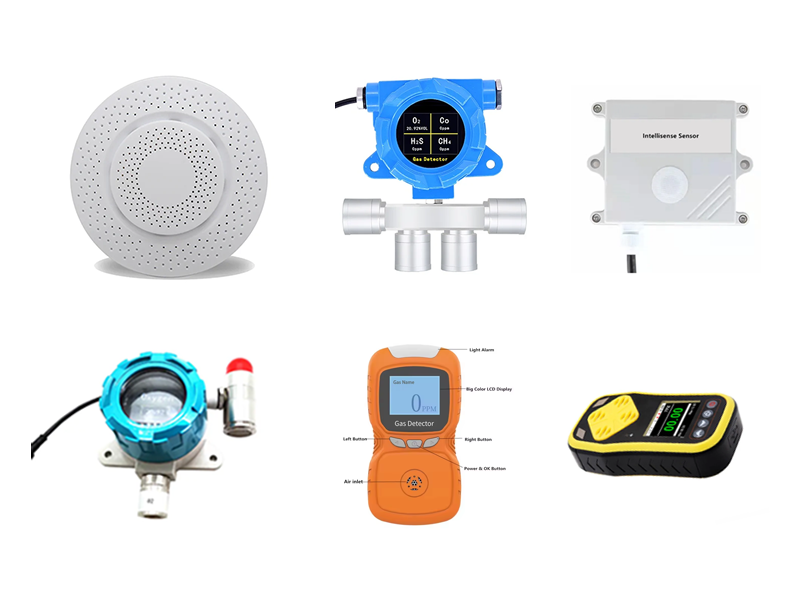Kuala Lumpur, Malaysia — December 27, 2024 — As Malaysia continues to develop its industrial sector and expand urban areas, the need for advanced safety equipment has never been more essential. Gas sensors, sophisticated devices that detect the presence and concentration of various gases, are increasingly being utilized across diverse sectors to enhance safety, improve air quality, and monitor environmental changes.
Understanding Gas Sensors
Gas sensors work by identifying specific gases in the environment, providing critical data that can prevent hazardous situations. They are designed to detect a wide range of gases, including but not limited to:
- Carbon Monoxide (CO): A colorless, odorless gas that can be lethal in high concentrations, often a byproduct of combustion processes.
- Methane (CH4): A primary component of natural gas, it poses explosion risks in enclosed environments.
- Volatile Organic Compounds (VOCs): Organic chemicals that can affect indoor air quality and human health.
- Hydrogen Sulfide (H2S): A toxic gas with a characteristic rotten egg smell, commonly associated with sewage and industrial processes.
- Nitrogen Dioxide (NO2): A harmful pollutant produced from vehicle emissions and industrial activities.
Key Application Scenarios
-
Industrial Safety:
In Malaysia’s rapidly expanding manufacturing sector, gas sensors are integral to ensuring safety in factories. Companies like Petronas use advanced gas sensing technologies to monitor for hazardous gases during oil and gas extraction and refining processes. Immediate detection of leaks can avert potential explosions, protect workers, and minimize environmental damage. -
Environmental Monitoring:
Urban areas in Malaysia face challenges with air pollution, particularly from traffic and industrial emissions. Government agencies are deploying gas sensors in air quality monitoring stations throughout cities like Kuala Lumpur and Penang. This data enables authorities to track pollutants and implement regulations aimed at improving air quality. For example, real-time monitoring of NO2 levels allows for timely public advisories during periods of elevated pollution. -
Agriculture:
In agricultural settings, gas sensors help farmers monitor environmental conditions to optimize crop production. Sensors measuring CO2 levels in greenhouses indicate the health of plants and can guide the application of fertilizers. Moreover, these sensors can also detect harmful gases released from decomposing organic matter, allowing for better management of waste. -
Smart Homes and Buildings:
The trend toward smarter living is gaining traction in Malaysia, with gas sensors becoming a standard feature in residential and commercial buildings. Sensors that detect CO and VOCs offer homeowners peace of mind, providing alerts when harmful gases are present. These systems can integrate with broader smart home technologies, enhancing safety and energy efficiency. -
Wastewater Treatment:
Gas sensors play a crucial role in wastewater treatment facilities by monitoring H2S levels, which can accumulate in anaerobic digestion processes. Early detection of hazardous concentrations ensures that facilities can take corrective actions to protect workers and comply with environmental regulations.
Challenges and Future Directions
Despite the advantages of gas sensors, several challenges remain. The initial investment in advanced sensing technology can be significant, particularly for smaller industries. Moreover, ongoing maintenance and calibration of sensors are essential to ensure accurate readings.
To address these challenges, the Malaysian government, in collaboration with private sectors, is exploring subsidies and incentives to encourage the adoption of gas sensors in various industries. Furthermore, as technology advances, developments in wireless connectivity and smart sensor systems are expected to simplify data sharing and improve real-time monitoring capabilities.
Conclusion
As Malaysia continues to industrialize and urbanize, the integration of gas sensors across various sectors is essential for enhancing safety, improving environmental monitoring, and ensuring public health. With ongoing technological advancements and government support, these sensors are poised to play a pivotal role in Malaysia’s drive towards greater sustainability and safety in the years to come.
Post time: Dec-27-2024


